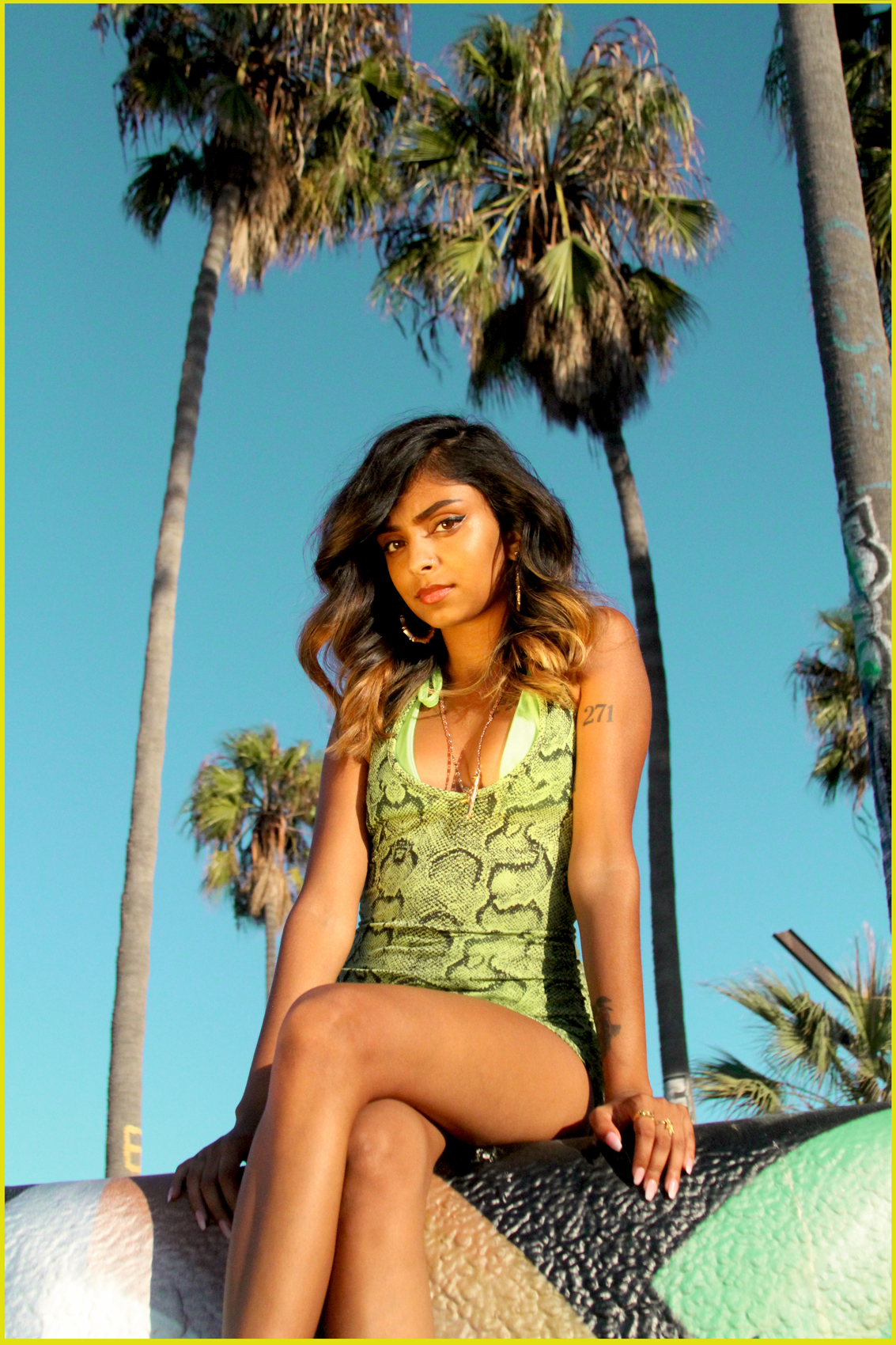
Meet Anjini Taneja Azhar, the Gen Z triple threat taking LA by storm. At only 19, she has many notable acting credits under her belt, such as Star Trek Into Darkness, The Brink and most recently a starring role in Thunderbolt In Mine Eye, a first love, coming of age story produced by Duplass Brothers Productions. Besides being an actress, she has written multiple shorts, produced music videos and is currently gearing up to direct her first feature. She hopes that her hard work and dedication to her craft at a young age will inspire other young POC creatives to get behind the camera. Most people think you have to wait until you’re an adult for people to invest in your vision, but this lady isn’t buying it. I met up with Anjini at her home in South LA to discuss race, age and politics in Hollywood.
You do so much under the umbrella of film, how did you find yourself as a multifaceted creative?
Growing up, you’re aware that everyone has a specific thing. You had the chess kid, the soccer kid, etc. I tried all these different hobbies and activities, but nothing really gave me that wholesome feeling in my heart.
I always knew I wanted to do something creative and acting was always interesting to me, so I decided to give it a shot. I auditioned for an agent, had so much fun and they ended up signing me. One thing lead to another and I started coming to LA to audition for various projects. The first film I landed went to Sundance and it sort of went up from there, from working on Star Trek with JJ Abrams to NBC and HBO with Jack Black. It was really exciting, and I was learning how much I loved film and being on set.
There was a point in time while working on Star Trek where I had the opportunity to watch JJ Abrams and really observe what he does. Obviously he’s a big figure and I was curious about his approach. Watching him play with the camera and actors was really the first time I realized that, although I loved acting, directing was where it was at. Like, that was it you know, that feeling like, “yes… I have finally found my thing!”
From there I wrote and directed my first short film for a school project when I was 15. It was a really stressful time in my life and I was scared, but I guess we did something right. We went to festivals [around] the world, and I just completed my second short that we just submitted to festivals.
Wow! You have already accomplished a lot at a young age. What is the driving force behind your ambition?
There has always been something in me that loved working. I love the reward you get out of it internally and how it makes you feel, but 99% of it comes from my background. Both of my parents are immigrants, my dad is from Bangladesh and my mom came here on her own at 19 from India. My mom was actually in film and modeling in India but she decided to come to America to receive an education that she wouldn’t have been able to get there.
They both came to America with the notion that this is the land of opportunities. When my mom first arrived, she barely spoke any English, and my dad came and had to fight his way through so many social barriers. Both of them had to go through so much struggle that I never had to go through and that gave them the work ethic of soldiers. Both of my parents are natural born leaders and that is something they instilled in me. Growing up I had my own weird and confusing moments about being born here, but my parents taught me that these are things I had to solve with [my own intuition.]
In Indian culture, we have a very traditional [view] of women and what they are supposed to be. It’s changing now, but even when I was little, women had to be more quiet and move with their heads down. This was how my mum was raised and she didn’t want that for me. She wanted me to be a leader, make my own decisions and create something for myself. She taught me to be independent and at 7 years old she taught me how to make my own doctors’ appointments. She had me speaking at school assemblies starting in elementary school and kept pushing, which really built a strong foundation for me.
My parents were laid-back, but with school, they were really strict. They taught me in an interesting way because instead of rewarding me for doing well, they taught me to appreciate it on the inside. This was one of the best lessons they could have taught me because now when I go after something, I do it for myself and not to please anyone else. For me, it’s about putting the work in and doing a successful job, and not about some material thing I’m going to get from it.
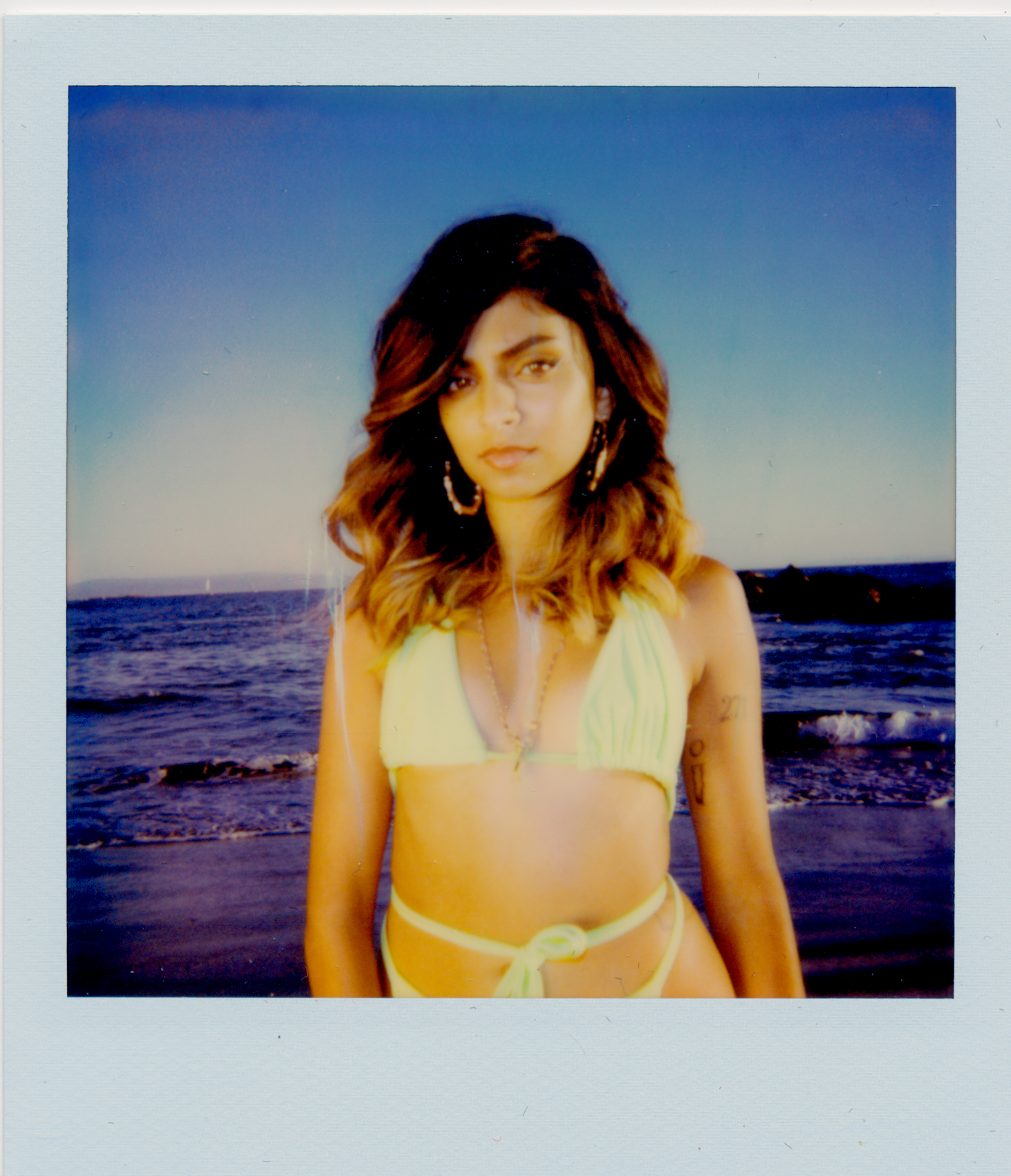
Tell me about your insight and experience in navigating the industry as a young woman of South Asian descent.
It’s an interesting place to be today because growing up it was such a conflict. Growing up, everything I did revolve around who I was and where I came from, and I always felt I had to pick a side. I was either “American” or “Indian,” because there’s no “American Indian” in the social landscape.
Nowadays we live in a world where we are encouraged to embrace our cultural diversity and that means all parts of you. I used to use my complicated cultural heritage as something to hold me back, but I’ve now learned to use that as a strength. I now embrace myself as a young brown female, and I want to use that to share my experiences, the things that I notice and put [them] in my work.
There might be some differences in the specifics of our story, but overall everyone can relate to the bigger picture. Everyone knows what it’s like to be forced to pick a side about who they are or are not, the feeling of being isolated or the need to belong. My backstory has [been] the driving force in the substance of my work.
Are there reoccurring subject matter within your work?
I like to create work that makes people think and feel, and cause a little bit of an internal debate within themselves. I like to write things that make people think about what’s right and wrong and to question or challenge what people accept as normal. I love to pick social justice topics or political topics [that] question the standard quota of social norms.
My mother taught me to always ask questions and challenge things that didn’t feel right, even if everyone else was doing it. This is something I have been doing my whole life and I really try and bring this idea into my work. I want people to watch my films, and really think about what they just saw and how it made them feel. If they [don’t] like something, I want them to challenge why it made them feel that way.
Speaking of challenging the status quo, let’s talk about politics. What are your thoughts?
I’m very political. I was always told to never withhold my opinion and if your ideas bother other people, then it’s probably a good thing. The biggest way that I contribute, is through my work. Protesting and marching are great ways to show your support and solidarity, but there are so many different ways to get involved and use your voice.
The current political climate is scary because it’s so divided and people have forgotten how to embrace different opinions and backgrounds. While there is often a clear dividing line between right and wrong, oftentimes that’s just not how humans work. People come from so many different backgrounds and in the separation, people have lost the importance of the feeling of [being uncomfortable]. You have to [become] comfortable with not being comfortable anymore because peoples’ lives depend on it.
The biggest thing that people can do is learn to converse and have a civil discourse in a manner of understanding. If someone is saying something that you don’t agree with, then there is a reason. You need to recognize that and challenge it because that’s the right thing to do. That’s why art is a great tool for politics because it creates a safe place for people to have a conversation and challenge the things they believe in.
What advice do you have for other young creatives in the world?
The more your ideas and ambitions are big and different, the more people are going to tell you that [they are] wrong and want you to shy away from them. Instead of letting them break you down, use it as gasoline for your fire to build yourself up. The more people don’t believe in you, the better it’s going to feel when you actually make it. There is a place in this world for any kind of art or any kind of creator.
Everyone is so different in this world, it’s really beautiful. Believe in people not believing in you, because it can be one of the greatest motivators, and once you prove them wrong, then everyone is going to believe in you.
What does “visibility” mean to you?
When I think of visibility, I think of the word LOUD. Every day I show up for myself— from the way I carry myself, to the way I dress and think. Visibility is a matter of being loud in your own skin. It’s about being a badass woman and owning it. My father is an immigrant from Bangladesh and my mother is an immigrant from India. They went through a lot to get to where they are today. Every day I allow myself to show up and be visible, I am honoring my parents past and my future.
I try to be different by being myself. There is only one of me in this world, and by showing up and being authentic I encourage others to be free. I’m only 19, but I don’t let my age define who I am and what I have to say. I’m a filmmaker and sharing my story is how I contribute to this world.
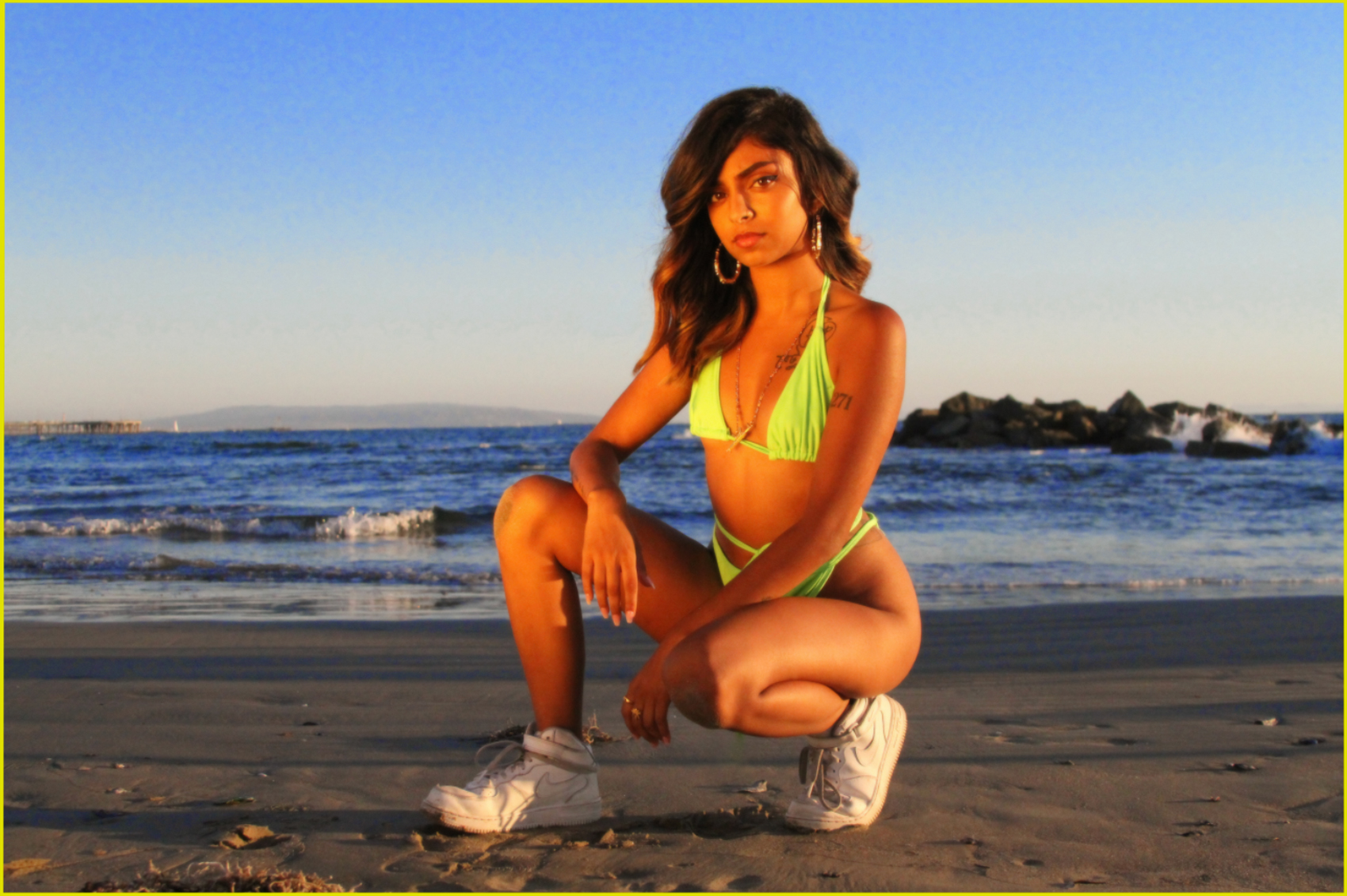
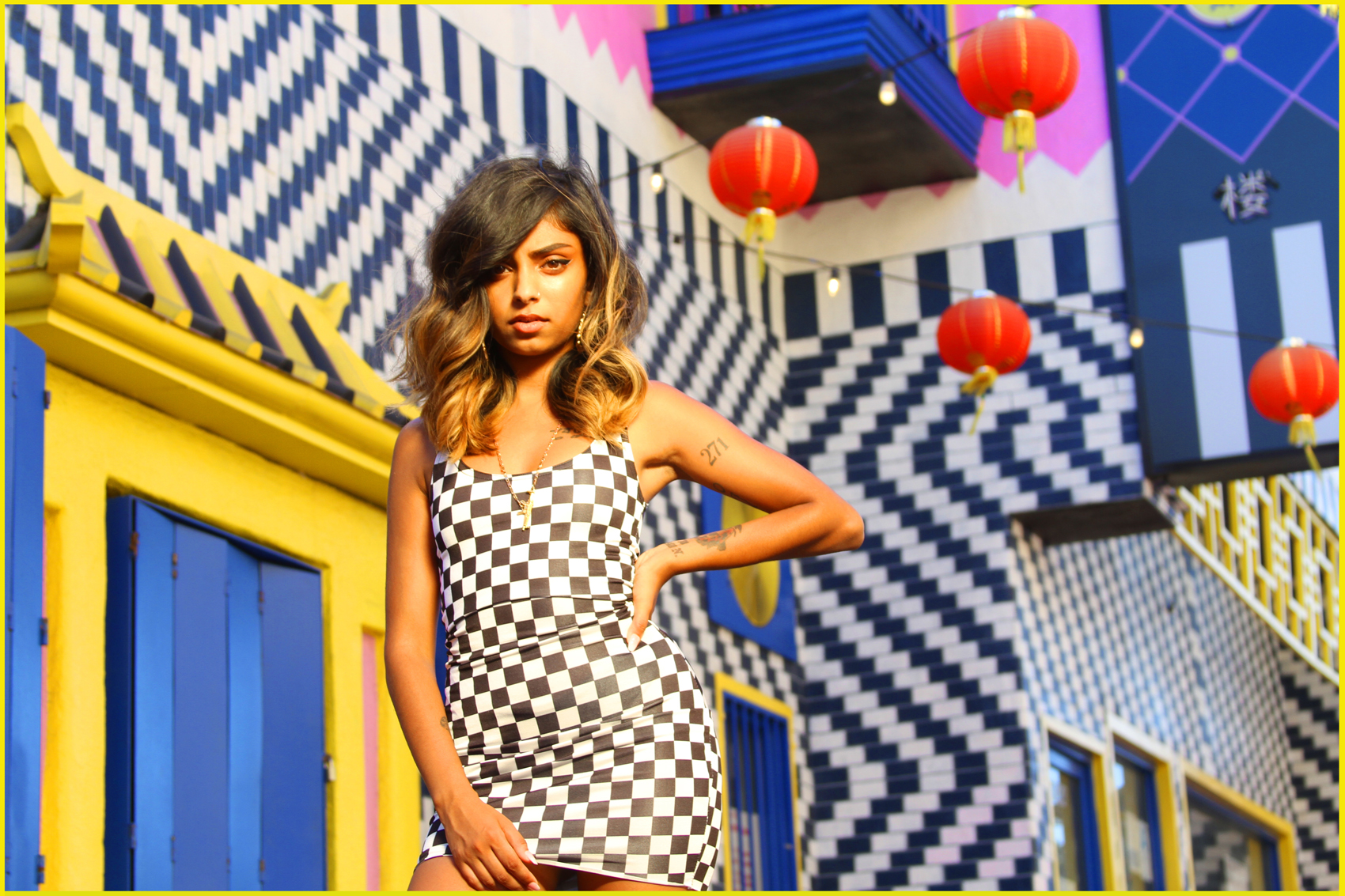
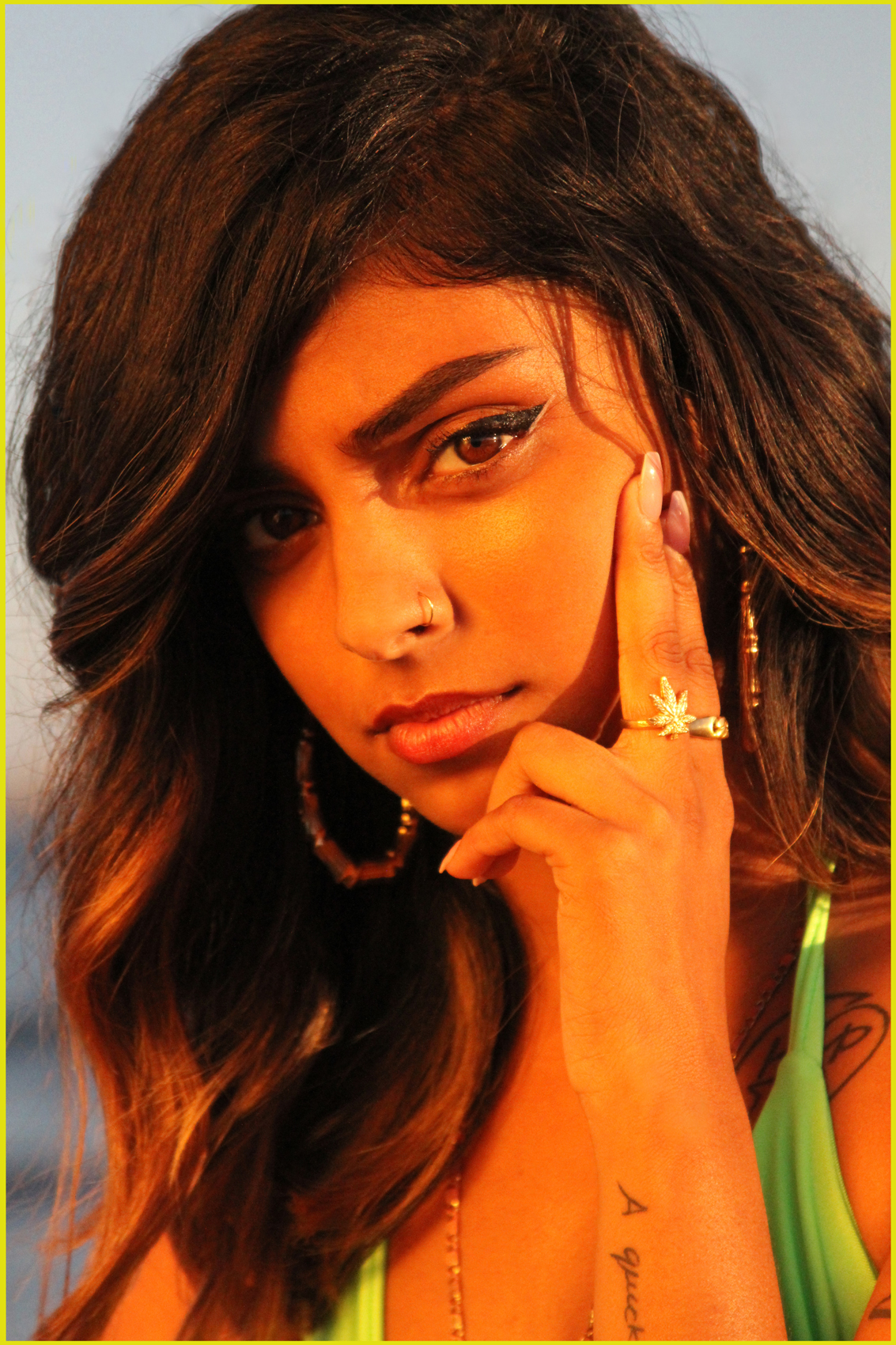
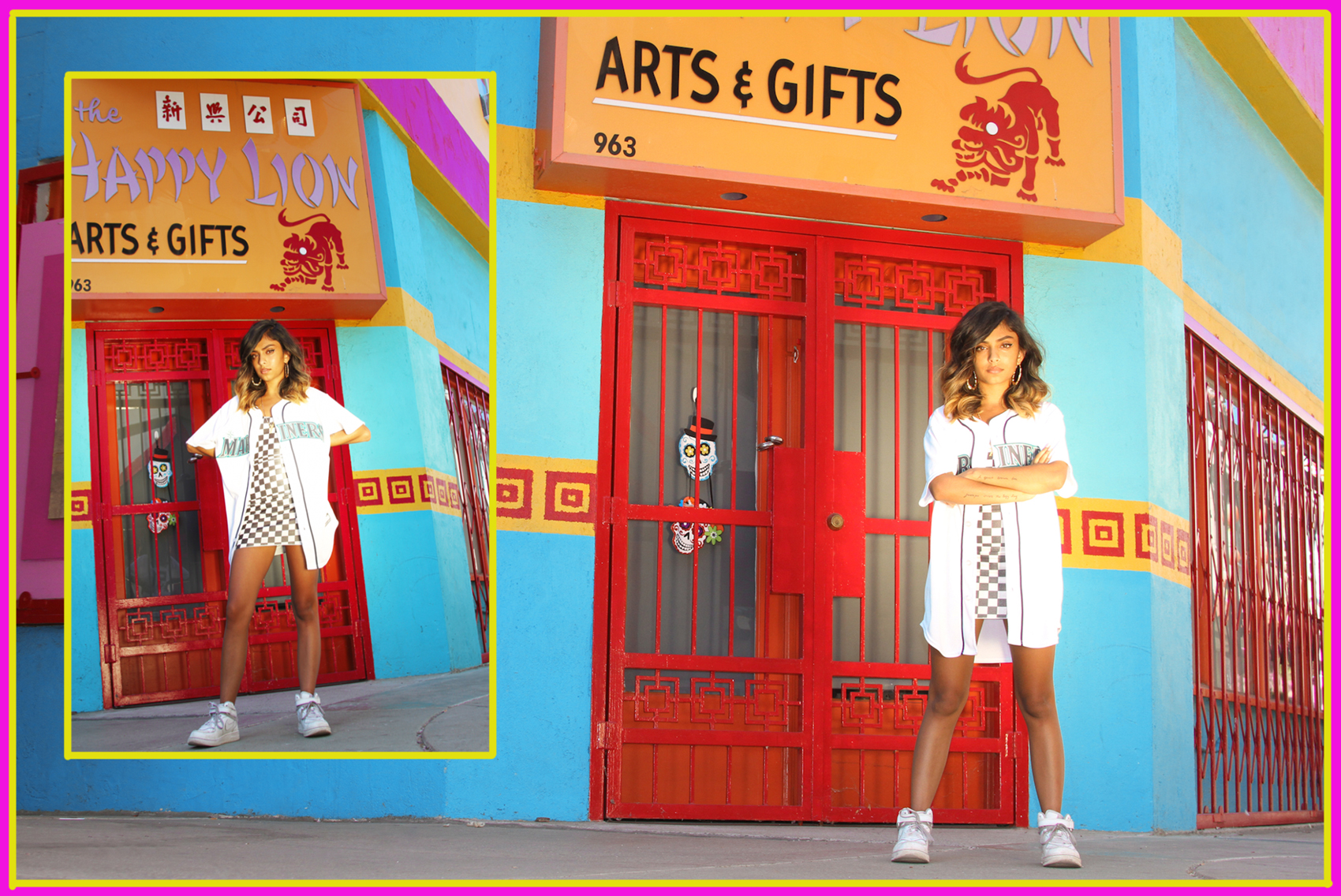
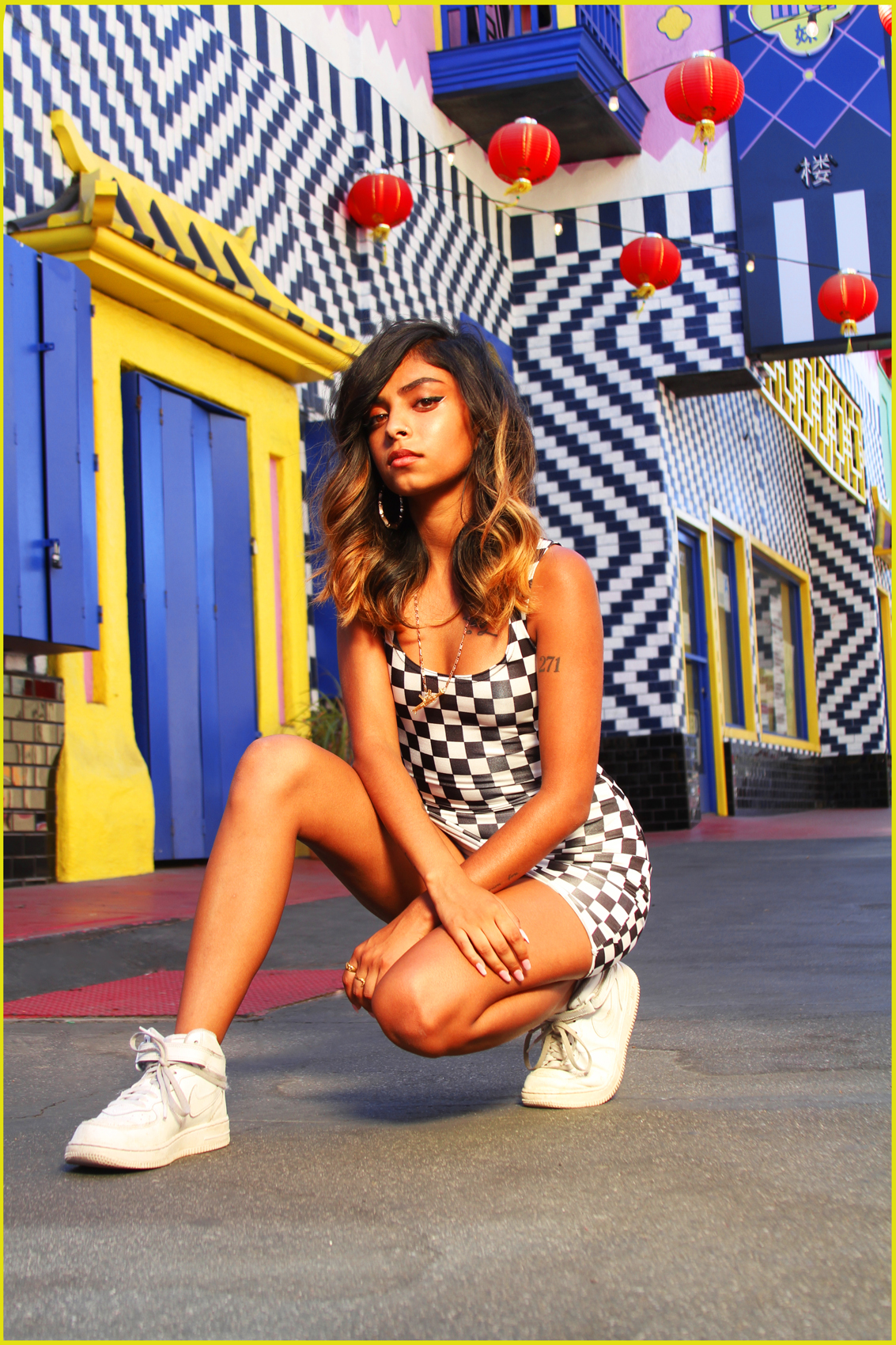
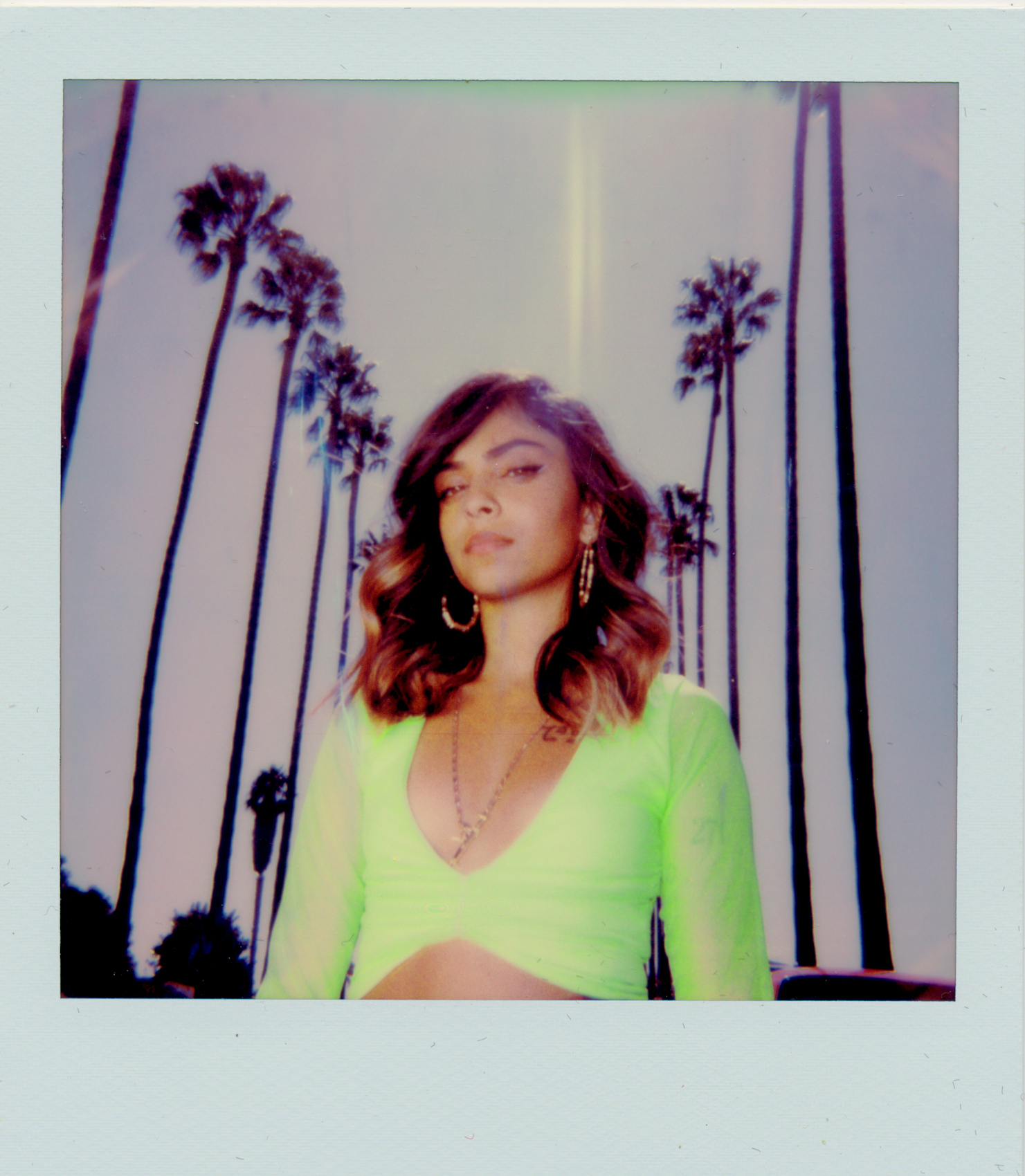
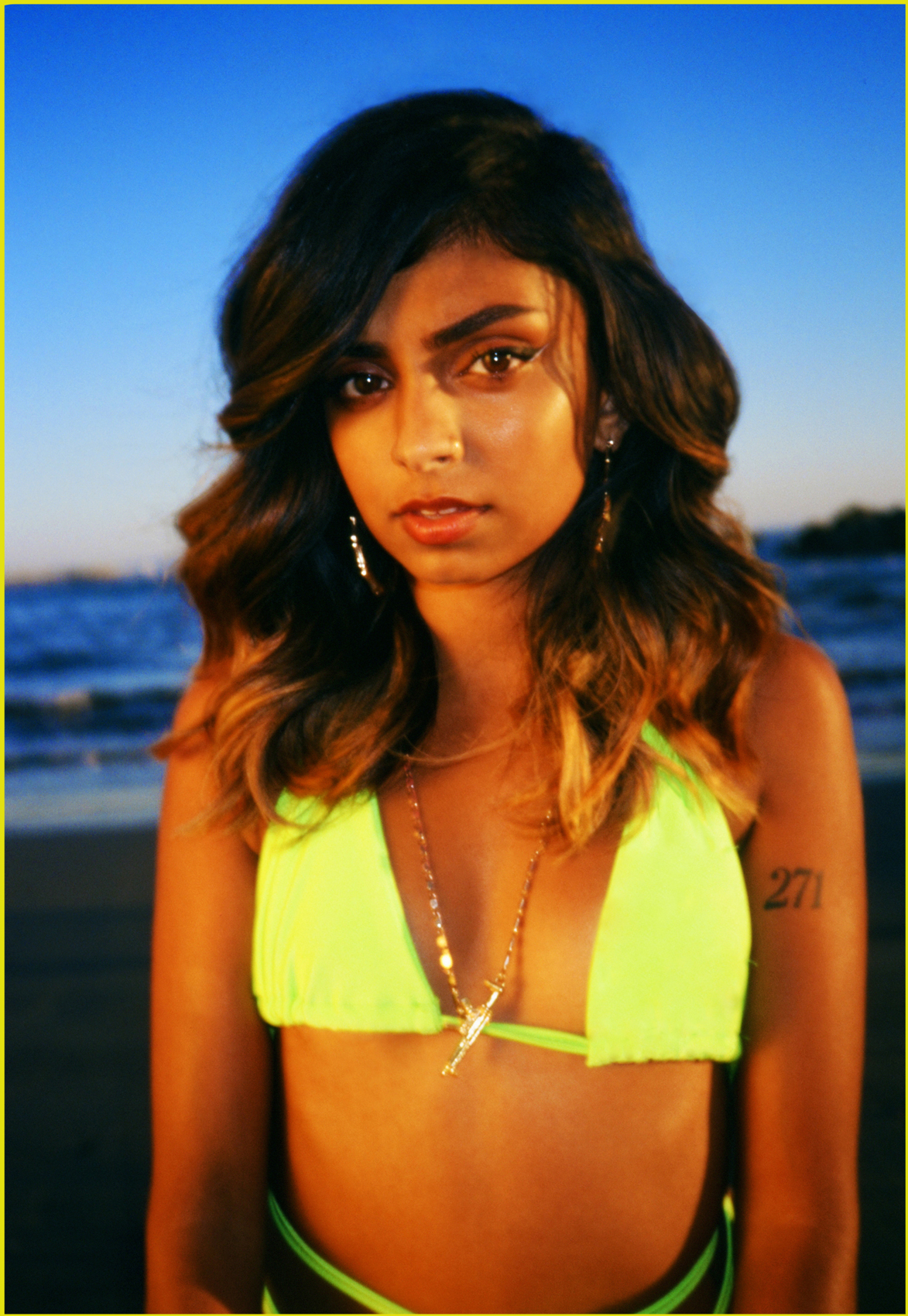
CONNECT WITH ANJINI:
